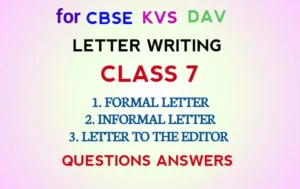Scoring full marks in unseen passages during Class 10 board exams is a challenging yet crucial task. As students navigate through the maze of complex texts, it’s essential to employ effective strategies for optimal performance. Let’s delve into 11 Tips to score full marks in unseen passages for class 10 2024 that can significantly enhance your ability to ace this section and secure those coveted full marks.
11 Tips to score full marks in unseen passages.
- Develop the habit of active reading, engaging with the passage to understand.
- Strengthen your vocabulary through regular reading and learning new words.
- Understand different question types, including factual, inferential, and vocabulary-based.
- Allocate specific time for reading and answering.
- Analyze previous years’ papers to identify patterns, question styles.
- Read a variety of genres to adapt to different writing styles.
- Develop critical thinking skills to evaluate arguments, perspectives.
- Pay attention to correct grammar and punctuation.
- Practice unseen passages consistently.
- Approach questions systematically, the easier ones first before more challenging ones.
- Seek feedback from teachers or peers on practice tests
Let’s now get into the detailed discussion. Understanding the significance of unseen passages in Class 10 exams is the first step towards excelling in this area. It’s not just about reading; it’s about comprehending, analyzing, and responding strategically.
People also ask
Understanding Unseen Passages
Unseen passages are a vital component of English exams, designed to test your reading comprehension skills. These passages, carefully chosen to be unfamiliar, aim to assess how well you can grasp and interpret information under exam conditions.
Reading Techniques
Active reading is the key to unlocking the secrets hidden within these passages. Train yourself to read actively—engage with the text, identify the author’s tone, and discern the central theme. Developing comprehension skills is equally important; understand the difference between skimming and scanning, and practice both techniques.
Vocabulary Building
A robust vocabulary is your best friend in tackling unseen passages. The ability to decipher the meaning of unfamiliar words in context is a valuable skill. Read widely and make a conscious effort to integrate new words into your daily conversations and writing.
Question Types
Different questions require different approaches. Factual questions demand a keen eye for details, inferential questions involve reading between the lines, and vocabulary-based questions necessitate a strong command of words. Know the distinctions and tailor your responses accordingly.
Time Management
Time is of the essence during exams. Allocate specific time slots for reading the passage, answering questions, and revising. Prioritize questions based on their marks and difficulty level to ensure you don’t miss out on any easy points.
Past Papers Analysis
Analyzing previous years’ question papers provides invaluable insights. Identify recurring themes, question patterns, and the depth of information required. This analysis helps in aligning your preparation with the exam’s expectations.
Diverse Reading Habits
Expand your reading horizons beyond textbooks. Explore different genres such as fiction, non-fiction, and articles. Exposure to diverse writing styles enhances your adaptability and helps you tackle passages with varying tones and themes.
Critical Thinking Skills
Unseen passages are not just about regurgitating information; they require critical analysis. Evaluate the author’s arguments, assess the validity of information, and form your own opinions. This skill is pivotal for answering questions that demand independent thought.
Grammar and Punctuation
Apart from understanding the content, correct grammar and punctuation play a crucial role in scoring full marks. Ensure your responses are free from grammatical errors, as this contributes to the overall impression of your answers.
Practice and Revision
Consistent practice is the cornerstone of success. Regularly practice passages from different genres and difficulty levels. Revise regularly to reinforce your learning and improve retention.
Strategic Answering Approach
Approach each passage with a systematic method. Read the questions first to understand what to look for while reading. Answer the easier questions first to secure those marks before tackling the more challenging ones.
Time-Tested Tips from Toppers
Gain insights from the achievements of those who have succeeded. Top scorers often have unique strategies that worked for them. Incorporate these tips into your preparation to refine your approach.
Feedback and Improvement
Seek feedback from teachers and peers on your practice papers. Constructive criticism is a powerful tool for improvement. Identify areas of weakness and work consistently to enhance your skills.
11 Tips to score full marks in unseen passages for class 10 2024 is a multifaceted task that involves a combination of skills – active reading, vocabulary, time management, and critical thinking. Adopting a holistic approach, incorporating diverse reading habits, and learning from both successes and failures will significantly boost your performance in this challenging section.
8 Unique FAQs
Q: Is it necessary to read the entire passage during exams?
A: Not necessarily. Skim the passage initially to understand its main idea. Focus on details when answering specific questions.
Q: How can I improve my vocabulary quickly?
A: Read regularly, use vocabulary apps, and maintain a personal word bank. Practice incorporating new words into your writing.
Q: What’s the best way to manage time during the exam?
A: Allocate specific time for reading, answering, and revising. Prioritize questions based on marks and difficulty to maximize efficiency.
Q: How can I analyze past papers effectively?
A: Look for recurring themes, question patterns, and the level of detail required in answers. Use this analysis to tailor your preparation.
A: Take a moment to think critically. Look for clues in the text, consider the overall tone, and make an informed inference.
Q: How should I prepare for the unseen passages of the English subject to score good marks?
A:
- Active Reading Skills:
- Vocabulary Enhancement:
- Question Type Familiarity:
- Time Management:
- Past Papers Analysis:
- Diverse Reading Practices:
- Critical Thinking:
- Grammar and Punctuation:
- Regular Practice:
- Strategic Answering:
- Feedback and Improvement:
Q: How much time should I devote to one unseen passage in the CBSE class 10 English board exam?
A: In the CBSE Class 10 English board exam, it is advisable to allocate approximately 20-25 minutes for one unseen passage. This time division allows for effective reading, understanding, and responding to the questions associated with the passage. Keep in mind that time management is crucial, so aim to strike a balance between thoroughly comprehending the passage and leaving ample time for answering questions. Practicing with time constraints during your preparation can help you develop a strategy that suits your reading speed and comprehension level.
Q: Is an unseen passage repeated in the class 10 exam?
A: The CBSE Class 10 English board exam typically does not repeat the exact unseen passage from previous years. The purpose of including unseen passages is to evaluate students’ ability to comprehend and analyze new and unfamiliar texts. However, the exam may include passages with similar themes, structures, or question patterns. Therefore, while the specific content may not be repeated, practicing with past papers can still be beneficial in familiarizing yourself with the format and types of questions that may appear.







